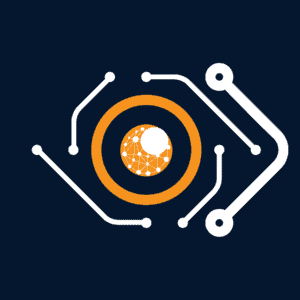This week, countries and investors need to step up the development and use of artificial intelligence (AI) to keep roads safe for everyone. Whats the answer?
Welcome to The Digital Eye, your weekly roundup of the latest technology news.
Our team of experts have scoured the internet for the most exciting and informative articles so that you can stay up-to-date on all things digital, data, blockchain, AI & analytics.
This week’s the Top Reads:
-
- Artificial intelligence can help halve road deaths by 2030
- Data Scientists & ML Engineers Are Luxury Employees
- Can Enterprise Workers Work Well With AI?
- Alviere raises $70 Million Driven by Company’s Rapid Traction in Embedded Finance
- How one approach to M&A is more likely to create value than all others
Bonus Article:
- Gartner Hype Cycle for Financial Analytics 2021
We hope you find this information valuable and would appreciate your help in sharing it with others who may also be interested.
Artificial intelligence can help halve road deaths by 2030
“There is an untapped opportunity to harness AI to close the digital and road safety divide around the world”.

👁️🗨️ Read Article
“Countries and investors need to step up the development and use of artificial intelligence (AI) to keep roads safe for everyone, three UN Special Envoys said on Thursday, leading a new AI for Road Safety initiative.
The Sustainable Development Goals (SDGs) include a call for action to halve the annual rate of road deaths globally and ensure access to safe, affordable and sustainable transport for everyone by 2030.
According to the newly launched initiative, faster progress on AI is vital to make this happen, especially in low and middle-income countries, where the most lives are lost on the roads each year. According to the World Health Organization (WHO), approximately 1.3 million people die annually due to road traffic crashes. Between 20 and 50 million more suffer non-fatal injuries, many incurring a disability. AI can help in different ways, including better collection and analysis of crash data, enhancing road infrastructure, increasing the efficiency of post-crash response, and inspiring innovation in the regulatory frameworks.”
shared by @MDiplomacyWORLD
Data Scientists & ML Engineers Are Luxury Employees
KEY TAKEAWAY “There is a huge mismatch between what most companies need and what ML practitioners want to do.”
👁️🗨️ Read Article
“Maybe it seems that everyone wants to become a data scientist, and every organisation wants to hire one as quickly as possible. However, a mismatch often exists between what companies need and what ML practitioners want to do. So, it’s time for the field to take another step toward maturity through an enhanced appreciation of the broad range of technical foundations for an organisation to become data-driven.
This pyramid has numerous variants, but the essential message is that AI/Machine learning sits at the top. So if you want to do machine learning, you need solid foundations. It would help with robust data pipelines that collect, transform and load the data. You need to clean it and store it in well-organized and documented locations. Then it would help if you had tools to query this (big) data efficiently. It would help if you also had a solid infrastructure to run your algorithms. It would help if you also had pipelines for frequent repeated training and inference. It would help if you had orchestrators. You need to keep track of your past experiments and the datasets used at the time. I will stop there because the objective is not to draw up a complete list but to show that there is a considerable amount of technical prerequisites.”
shared by@kdnuggets @hackernoon
Can Enterprise Workers Work Well With AI?
“Organizations can incorporate AI agents to assist workers with data crunching and routine customer service.”
👁️🗨️ Read Article
“While there have been many papers and just as many discussions about the value that artificial intelligence can bring to the digital workplace, there has been less discussion about whether enterprises should use AI, and even less as to whether workers can genuinely work with it.
AI Working With Enterprise Workers
While a lot of the coverage AI receives in the media looks to the positives of AI — unless, of course, that coverage is about the possibility that AI will result in the suppression of jobs — there is also recent research from MIT that questions whether humans are capable of working with AI or not. A recent article by Kylie Foy from the MIT Lincoln Laboratory argues that while AI programs have far surpassed the best players in the world in games that are generally considered essentially human, humans didn’t appear to enjoy playing, or collaborating, with AI.”
shared by @GetReworked @druadh20
Alviere raises $70 Million Driven by Company’s Rapid Traction in Embedded Finance.
“Embedded finance revolution is shifting face of banking & insurance away from traditional big players to new entrants.”
👁️🗨️ Read Article
“Alviere, a Global Fintech Startup, Raises $70 Million Driven by Company’s Rapid Traction in Embedded Finance.
NEW YORK, NY — October 12, 2021 — Alviere, the leading embedded finance platform enabling any brand to deliver financial products and services to its customers and employees, today announced that it had raised $70 million of new funding, the most significant investment in this emerging sector of fintech to date.
In April, Alviere closed a $20 million Series A led by Viola Ventures and Viola Fintech, with the participation of CommerzVentures, Mitsubishi Capital Corporation, Wix.com Capital (NYSE: WIX), Draper Triangle Ventures, Cross River Bank Capital, CERCA Partners and more.”
shared by @AlviereFT
How one approach to M&A is more likely to create value than all others
TAKEAWAY: “Programmatic M&A strategies continue to create gains in total excess returns to shareholders, at lower levels of risk.”
👁️🗨️ Read Article
“Artificial intelligence (AI) has become a red-hot topic, with record levels of investment in “AI” companies and promises of capabilities that will revolutionise our lives. Many are puzzling through how AI can add value, and a growing number of vendors claim to be “AI-powered.” Given the buzz and rush to wrap the mantle of AI around any new technology, it makes sense to ask the basic question, “What exactly is AI?”
Start with the practical definition that artificial intelligence is any technology that tries to replicate some broader aspect of human intelligence. I emphasise “broader,” as that’s where a fair amount of confusion emerges. Think, for example, of the ability to perform arithmetic. Most people would agree that this capability is uniquely human. But I doubt anyone would conclude that a calculator is built on artificial intelligence.”
shared by @McKinsey
Bonus Article
Gartner Hype Cycle for Financial Analytics 2021


 The DiGITAL EYE
The DiGITAL EYE